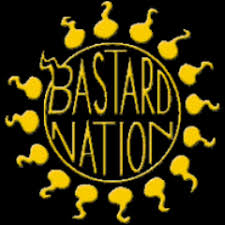Bastard Nation: the Adoptee Rights Organization
PO Box 4607
New Windsor, New York 12553-7845
bastards.org 614-795-6819 @ BastardsUnite
TO: Advisor, Committee, and Observers
FROM: Marley Greiner, Executive Chair, Bastard Nation
DATE: December 7, 2020
RE: Submitted Comments on proposed draft language of The Unregulated Transfers of Adopted Children Act – December 4-5, 2020 discussion
Bastard Nation: the Adoptee Rights Organization is the largest adoptee civil rights organization in the United States. Below are our comments regarding the proposed Unregulated Transfers of Adopted Child Act based on the online discussion held on December 4-5, 2020 and comments received via email about that discussion.
I was unable to attend all of the sessions, It appears from the parts I did attend and the comments received since then that there is still quite a bit of controversy about the creation of the draft legislation.
I had hoped that by this time the core of the draft concerns about parental intent in custody transfer and the purpose of the draft would be moot, but it appears that unrelated issues and marginal concerns have popped up again.
Unfortunately, I continue to see the de-centering of adoptees and their rights The focus has returned to intact families in temporary straits and parents who have no interest or intent in severing their parental rights or relationships and whose circumstances have nothing to do with the rehoming practices the Commission is attempting to address.
This is extremely frustrating and frankly not acceptable, to those of us in the adoptee rights trenches who know that unregulated rehoming is a problem rampant in adoption, especially, international adoption.
I cannot stress this enough: “sending” and “receiving” parties involved in unregulated rehoming unlike those who have no intention to sever their parental rights but find themselves in need of temporary custody arrangements, do not follow a “child’s-best-interest standard. Neither “sender” nor ”receiver” are well-intentioned. Please stop acting like they are. Adoptive parents who rehome their “forever children” without regard to ethics or law no longer want the parental responsibility they signed up for and were approved for by social workers and courts. Those who receive these inconvenient children utilize the black/gray market do so for “adoption” (note the quotes), sex trade, or servitude. Each party trolls social media, underground networks, Craig’s List, and other advertising sources, seeking matches often with the assistance of paid third parties. Unregulated custody transfer is a nice name for child trafficking.
And I cannot stress this enough: unregulated re-homing has nothing to do with temporary custody assignment, or traditional and cultural childcare custody practices, which I doubt anyone on this committee or observers, hold objection. If the state, with its heavy intrusive hand, attempts to use unregulated re-homing statutes to break up families especially in the cases of Blacks and POC, the poor, and LBGTQ then that is on the state and needs condemned and halted through activism and legislation that expressly addresses and forbids it.
The final re-homing draft should be very clear on its purpose and target. To stop the practice of adoptive parents, who with clear intent, plan to sever their parental rights outside of the legal system and ship their adoptive child/children off to strangers.
As I wrote on November 12, 2020, the draft must insist that:
…the intent of adoptive parents to sever parental rights to their adopted child must be clear. The draft should not concern itself with informal and/or temporary custody transfers (examples: family illness, imprisonment, educational opportunities). Legal responsibility in those cases, however, should obviously be laid out either by state laws or other legal mechanisms to protect the child, the parent, and the caregiver.
In closing, the need to shut down the unregulated transfer of custody comes down to state and institutional adoption’s failure to protect the interests and rights of those they approved into adoption. It is important to remember that unregulated re-homing is not a benevolent act, It is a way for adoptive parents, without public or legal scrutiny, to abandon the legal and moral commitment they took on for a child not their own when they adopted. Re-homing should be a last resort, rare, and regulated by law.
As I side note, the draft language on advertising seems strong and we have no objections.
Sincerely yours,
Marley Greiner
Executive Chair

